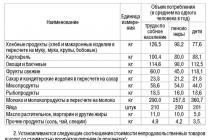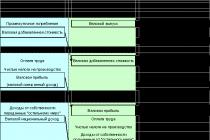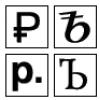August 28, 2017 Dmitry Sredin assumes the position of Head of the Department for Work with big companies, service directorates corporate clients and investment banking operations of Raiffeisenbank.
The primary tasks of Dmitry Sredin in his new position will be the development and implementation of a strategy for selling products and services to large corporate clients, attracting and developing the business of large corporate clients through comprehensive offers, as well as managing a corporate portfolio.
“This year we have merged the Corporate Clients Servicing and Financing Directorate with the Investment Banking Services Directorate into a single organizational structure. Now we are facing even more ambitious tasks: taking into account the specifics of each client's business, to make our banking service richer and more diverse, - says Nikita Patrakhin, Member of the Board, Head of Corporate Client Services and Investment Banking Operations at Raiffeisenbank. — I am sure that Dmitry Sredin’s knowledge and experience in building and managing complex business processes in the corporate investment business and managing large teams will become important factors successful work of both the corporate management and the bank as a whole”.
Dmitry Sredin has over 20 years of experience in the financial industry and, prior to joining Raiffeisenbank, managed a number of major client departments at Sberbank. In addition, Dmitry has extensive experience in organizing and developing business in the CIB segment, including in Renaissance Group, Troika Dialog and Citigroup.
AO Raiffeisenbank is a subsidiary of Raiffeisen Bank International AG. JSC Raiffeisenbank ranks 14th in terms of assets in the first half of 2017 (Interfax-CEA). According to Interfax-CEA, Raiffeisenbank ranks 10th in Russia in terms of private individuals' funds and 7th in terms of retail loans in the first half of 2017.
Raiffeisen Bank International AG is a leading corporate and investment bank on the financial markets Austria and in the countries of Central and of Eastern Europe. In Central and Eastern Europe, Raiffeisen Bank International operates an extensive network of subsidiary banks, leasing companies and a wide range of providers of other specialized financial services in 15 markets (including Austria).
More than 50,000 employees serve 16.6 million customers in more than 2,400 locations, most of which are located in Central and Eastern Europe. Since 2005, the shares of Raiffeisen Bank International have been listed on the Vienna Stock Exchange.
Following the merger of Raiffeisen Bank International and Raiffeisen Zentralbank Austria AG (RZB) in March 2017, the combined bank (as previously RBI) operates under the name Raiffeisen Bank International AG. All rights, duties and obligations of the RCB have been transferred to the RBI.
- 20:20 The United States blocked the creation of arbitration in a dispute with Russia in the WTO
- 19:52 US will not give up cluster bombs
- 19:36 Dmitry Rogozin's page disappeared from Facebook
- 19:23 Bloomberg predicted Russia's billions in losses due to new requirements for "ship" oil
- 19:17 The defense of Dzhigarkhanyan's ex-wife wants to check the actor's illness certificates
- 19:11 The author of the hits Leps and Orbakaite died in an accident
- 18:49 The owner of "Zhduna" sued Channel One
- 18:42 Oilmen asked the government to raise gasoline prices by 5 rubles per liter
- 18:22 Pamfilova wants to rename the ballot box because of unpleasant associations
- 17:51 The Central Election Commission of Russia intends to receive information about voters directly from the registry office
- 17:44 Sheep cages brought to Novaya Gazeta
- 17:37 The Times: VTB sues Deripaska for £100m
- 17:21 Spring heat is coming to Moscow
- 17:13 Nine injured in Tunisia suicide bombing
- 16:49 Suspected serial killer and rapist detained in Cherepovets
- 16:20 Putin replaces Russian ambassador to Syria
- 16:19 The Moscow City Court overturned the decision on the legality of initiating a case against Shestun
- 15:51 Medvedev threatened to impose prohibitive duties on oil due to rising gasoline prices
- 15:22 Merkel won't run for German chancellor
- 14:55 China to build permanent airport in Antarctica
- 14:51 The court dismissed the case of ex-deputy of the State Duma Voronenkov due to death
- 14:28 Russians do not eat less, but save on clothing and entertainment
- 14:23 The co-owner of the 1520 group of companies was charged with giving bribes for 2 billion 83 million rubles
- 14:15 The license of the Moscow Institute of TV and Radio Broadcasting was withdrawn
- 14:05 Moscow City Court leaves suspected bribe-giver Zakharchenko under arrest
- 13:54 The court closed the site where the sale of human organs was offered
- 13:45 In Word documents found a new danger of infecting computers
- 13:25 Cartoon "Smallfoot" became the leader of the Russian box office at the weekend
- 13:15 Volokolamsk mayor voluntarily resigns
- 13:15 "Formula Kino" and "Cinema Park" will be renamed into Okko
- 12:59 The first Avangard complexes will take up combat duty in 2019
- 12:41 NTV correspondent Nikita Razvozzhaev committed suicide
- 12:31 Merkel will not be elected as chairman of the CDU party
- 12:21 An official of the Ministry of Finance wounded a man from a trauma in Moscow
- 12:11 The founder of WWF in Russia died in the Bryansk region
- 11:55 Japanese princess marries a commoner
- 11:44 Fitch confirmed credit rating Ukraine at the "B-" level
- 11:27 The head of the Central Election Commission reported on the cases of nomination of "dead souls" in the elections
- 10:59 SK opened a case on the negligence of officials after the flood in the Kuban
- 10:29 Plane crash in Indonesia kills 20 Finance Ministry officials
- 10:11 Moscow says goodbye to Nikolai Karachentsov
- 09:44 Media: US bases vulnerable to Russian missiles
- 09:15 "Kommersant": a database of 420 thousand employees of Sberbank "leaked" to the Internet
- 08:44 Boeing crashed in Indonesia was serviceable
- 08:14 British intelligence knew about the attempt to kidnap journalist Khashoggi
- 08:13 Russians mistakenly wrote off more than five million car fines
- 07:45 Traffic will be restricted near Lenkom for the time of farewell to Karachentsov
- 07:15 Second round of presidential elections to be held in Georgia
- 07:06 Passenger plane crashes off the coast of Indonesia
- 05:29 Lion Air plane vanishes from radar 10 minutes after taking off from Jakarta
All news "
Dmitry Sredin, Head of the Department for Work with Large Companies of Raiffeisenbank, spoke about working with companies under sanctions and risk assessment methods
Dmitry Sredin. Photo: Raiffeisenbank
In November, the US may introduce another round of sanctions against Russia. How have banks already learned to work in these conditions, especially with large businesses, what has changed in these relationships, and how does the external environment affect, including businesses that have not been sanctioned? In the portfolio of Raiffeisenbank, the share of clients already on the US sanctions list is small, but interaction with them continues.
Dmitry Sredin: Of course, we have analyzed all the companies that are on this list and clearly understand how we worked with them and how we will work. We are in dialogue with everyone and have already passed a difficult period when two companies were included in this list and that’s it. commercial banks were forced to curtail relations with these companies. We passed this stage on a very positive wave and continue to conduct a dialogue with them. We know how to act "in case". But we are definitely not afraid and we continue to work in business mode as usual. It's just that all the radars are on, and we know very clearly what we will do in any scenario.
As for the rest of the bank's clients, the external environment to one degree or another also affected the work with them. There are no global shifts, but there are new inputs regarding customer risk analysis.
Dmitry Sredin: We announced quite a serious growth in Russia a year and a half ago: 30% growth in corporate business. We have achieved these indicators and are moving very confidently, while the external situation leaves its mark on how we interact in terms of our credit policy, analysis and risk assessment. This analysis has shifted from a detailed examination of the financial condition of our borrowers to a more detailed examination of political risks related to a particular group of companies with which we work. Naturally, in some cases this lengthens the decision-making process, but we do not see any global changes in terms of interaction between banks and customers at the moment.
The behavior of potential large borrowers is also changing. The main reason is currency risks and a new business approach to their assessment. Low rate no longer a decisive argument.
Dmitry Sredin: Ruble-denominated companies have become less likely to borrow in dollars. In our bank's experience, a significant change occurred 12-18 months ago when the rhetoric changed. Previously, they came and looked: in dollars, the rate is X, in rubles - Y. If it is cheaper in dollars, then the client insisted that the bank allocate funds in dollars. All persuasions and explanations that in case of a change exchange rate you get huge financial risks for their business, not very helpful. Apparently, it was necessary to get burned once. In the case of corporate clients, we went through a giant wave of restructurings two or three years ago. This applies in particular to the market commercial real estate. And now there is a completely different rhetoric and different conversations with clients, and borrowers have begun to look at this very carefully. And if they come for foreign currency loans, having ruble cash flows, then the conversation is necessarily about hedging.
The criterion of "reliability" came to the fore when choosing a partner bank. Over the past 12 months, two stable trends have emerged: the flow of customers from medium and small banks and the flight to quality.
Dmitry Sredin: Politics Central Bank in a relationship banking system led to the fact that financial directors, business owners and CEOs began to look more closely at what financial institutions they work. And criteria like the minimum loan rate and more high rate on the deposit, go by the wayside. People look at where it is safer to keep their money. And how reputational it will look to work with a bank that may lose its license. Trend number two: the flow of liabilities to the banks of the top ten to twenty is quite noticeable, starting this summer.
But at the same time, banks at least, Raiffeisenbank, when looking for potential borrowers, seems to have expanded their horizons?
Dmitry Sredin: We have now directed a very large focus on the Russian regions, on companies that rarely appear on the Forbes list, but at the same time are fast-growing, with excellent management, with excellent financial condition with a clear development strategy. We carried out a detailed analysis of the entire structure Russian economy, analyzing who we would like to work with and in what regions. We see the segment of companies with revenues from 5 to 40-50 billion rubles as very promising in this moment and we plan to continue to grow in it.
Successful and even impressively successful cases can now be found in agriculture.
Dmitry Sredin: I was very pleasantly surprised by our wine industry, for example. I visited several enterprises in the Krasnodar Territory, and the level of technical equipment, the understanding of the staff of how to work, what they do and why, I was amazed. The image that was five years ago has nothing to do with what is happening now. The way agriculture is developing in the country is really pleasing. In addition to the fact that they do it professionally, this is also a viable business that is able to continue to develop and continue to reinvest the profits received, and, which is important for the bank, service the loan.
It is far from only the external conjuncture that is changing the relationship between big business and credit organizations. Huge contribution digitalization, which is now being talked about so much, is also making these changes. Retail clients see the result in a qualitatively new level of convenience of contacts with the bank, and in the corporate segment, new technologies make it possible to increase the speed of providing financial instruments.
Dmitry Sredin: We are constantly updating, we work with startups, look at new ideas, and implement them as quickly as possible. All the buzzwords that sound on the air: agile, scrum - we have it all and are fully used in the format that the bank needs. We are not trying to blindly copy someone. But these innovations allow us to provide some products and tools faster, some better, to minimize the amount of workflow. All these little things seem to be unimportant, but in combination they give a very important effect for the client.
Add BFM.ru to your news sources?
Decree
Our village is growing: the population is increasing, new houses are being built, new streets and neighborhoods are appearing.
In December 2018, Resolution No. 289 of the Administration was issued municipality"Medvedevskoe urban settlement» on assigning a new street in the village of Medvedevo named after Dmitry Sredin.
We would like to tell you about the person whose name the street will now bear, so that generations of people will remember not only the glorious names of fellow countrymen, but also their deeds, their work.

Sredin Dmitry Vasilievich was born on February 11, 1907 in the family of a middle peasant in the village of Surty, Medvedevsky district, Mari Autonomous Soviet Socialist Republic.
He began to work at the age of eleven, received excellent labor hardening and did not shy away from any work, as a teenager he helped to float the timber along the river. Kundysh. Traded in the local consumer society. Then he headed the city workers' cooperative and shop.
In 1929-1931 he served in the Red Army in Kronstadt. After demobilization, he worked as an instructor in the workers' cooperative of the city of Yoshkar-Ola, chairman of the Yoshkar-Ola city council of OSOAVIAKhIM (Society for the Promotion of Defense, Aviation and Chemical Construction - a Soviet socio-political defense organization that existed in 1927-1948, the predecessor of DOSAAF).
In March 1933, among 50 communists, the regional committee of the CPSU (b) sent him to Zvenigovo, where Sredin became chairman of the Zvenigovsky district council of OSOAVIAKhIM, and since 1938 - head of the Zvenigovsky district department. Eight years have passed here - a difficult time of becoming a leader. The repressions of 1937-39 raged in the country, they also touched our republic, but, fortunately, Dmitry Vasilyevich was bypassed.
In 1939, Dmitry Vasilievich was nominated for party work, first as head of the propaganda and agitation department of the Zvenigovsky district party committee, and then as secretary for personnel and second secretary of the Kilemar district committee of the CPSU (b).
Since 1943, he worked as the head of the department of the Mari regional committee of the CPSU, and in 1944 he was elected first secretary of the Ronginsky district party committee. In 1948, Sredin D.V. sent to study at the Gorky Higher Party School, after which he worked as head of the department of agriculture of the regional committee of the CPSU (b).

September 1951 was a turning point in the life of D.V. Middle. He was elected first secretary of the Medvedev district party committee. He led the district from 1951 to 1970, worked until his retirement for 19 years. Per worthy contribution the overall success did not bypass him and the awards. Sredin is a holder of the orders of Lenin, the October Revolution, the Red Star, the Red Banner of Labor.

Delegates of the 23rd Congress of the CPSU from the Mari Regional Party Organization and comrade. Suslov M.A. 1st row: Uraev P.V. (First Secretary of the Mari Regional Party Committee), unknown. (seller from Yoshkar-Ola), Suslov M.A. (Secretary of the Central Committee of the CPSU), Gorinov T.I. (Chairman of the Council of Ministers of the MASSR), unknown. (Volzhsk, MBK). 2nd row: Bagaev G. N. (Director of the state farm "Voskhod" of the Mari-Turek region), Yarovikov A. V. (Chairman of the collective farm "40 years of October" of the Novotoryalsky region), Almakaev P. A. (Second secretary of the Mari regional party committee ), Udovichenko A.A. (position unknown), Sredin D.V., Utrosin A.A. (commander of the 14th missile division). 3rd row: unknown, Sakanov Evstafiy Fedorovich (Secretariat of the Supreme Council of the MASSR). Moscow, Georgievsky Hall of the Kremlin, 1966.
He was elected a deputy of the Supreme Soviet of the MASSR (five times) and the RSFSR, a member of the Mari Regional Party Committee and a delegate to the XXIII Congress of the CPSU. He was elected a deputy of the Medvedev District Council of eight convocations.
The personal file contains characteristics signed by the secretaries of the regional committee Pavlov, Kushnarev, Uraev, Nikonov, evaluating his activities only with positive side. He respected people, and they paid him the same.
On April 28, 1970, Dmitry Vasilievich was solemnly escorted to a well-deserved rest. It should be noted that D.V. Sredin for more than a year, already retired, worked in the apparatus of the Mari Regional Committee of the CPSU. Dmitry Vasilyevich Sredin died on April 19, 1985 after a serious illness at the age of 79.
On February 11, 1997, an evening of memory was held in the hall of the regional museum, on this day Dmitry Vasilyevich would have turned 90 years old. Former party colleagues, heads of organizations and enterprises arrived.
Sergey Stepanovich Zhilin, former director of the state farm "Semenovsky", Hero of Socialist Labor, recalls Sredina as a born leader and a charming interlocutor. Dmitry Vasilievich did not abuse power, he was guided by the slogan "cadres decide everything." People responded with selfless work to care, attention, and things in the area went uphill. With his direct participation, highly productive black-and-white cattle appeared in the region, livestock breeding complexes began to be built, social and cultural institutions - well-appointed residential buildings, kindergartens.
The chief livestock specialist of the production department, Nadezhda Andreevna Perminova, noted that it was interesting, albeit difficult, to work with D.V. Sredin as the head of the district. He was a demanding, principled person, easy to handle and accessible to everyone. A simple collective farmer or leader could come to him and find understanding, ask for help and receive it.
During the years of leadership of the Srediny district, new trends came into life more and more confidently. They adopted the best management experience from their neighbors, in other regions, even abroad. Work on soil fertility has improved, organic matter has been introduced, and as a result, productivity has gradually increased and the forage base has been strengthened.
Former director of the "Prigorodny forestry" B.V. Baikov recalled how Dmitry Vasilievich skillfully worked with people, saved frames. Listening to his remarks, for more than thirty years of directorship at a forestry enterprise, he did not dismiss a single worker for any misconduct, he always tried to influence feelings and conscience. At any meeting of the collective there were representatives from the district committee of the party. In such an atmosphere of attention, it was impossible to work poorly.
Egoshina L.I., who worked as the head of the district seed inspectorate, noticed that Dmitry Vasilyevich could find a common language with any person, spoke with a child as if with a small one, with an old man - respectfully and respectfully. An amazing human being. He lived simply, modestly, without frills.
Dmitry Vasilyevich Sredin worked for the benefit of the people, his activities were aimed at the prosperity of the region, and therefore he managed to leave behind many memories imbued with a respectful attitude towards himself and his active work.
 article in the Vesti newspaper, March 1, 2019
article in the Vesti newspaper, March 1, 2019  st. D. Sredina, photo Vaseneva E.E.
st. D. Sredina, photo Vaseneva E.E.  st. D. Middle, photo Vaseneva E.E.
st. D. Middle, photo Vaseneva E.E.
Used sources:
- Born in forty-third [Text]: on the occasion of the 55th anniversary of the Medvedev district of the Republic of Mari El: [collection] / ch. ed. Z. N. Odintsova. - Yoshkar-Ola: Periodicals of Mari El, 1998. - 350 p.
- Chronicle of the district in the affairs of deputies [Text]: a collection of documents and materials / Administration of the municipal formation "Medvedevsky municipal district"; under total ed. D. G. Shagiakhmetov. - Medvedevo, 2006. - 255 p. : ill.
- Dmitry Vasilyevich Sredin [Text]: [obituary] // Mariskaya Pravda. - 1985. - April 20.
Application for a commercial letter of credit - a document by which a bank is instructed to open a commercial letter of credit on the terms specified in this document.
The application for opening is drawn up in three copies and signed by two authorized persons of the organization, the signatures are sealed.
In cases where the amount of the letter of credit is expressed in the currency of the contract price, and payment is provided in another currency (currency of payment), the application must indicate the conversion rate or the method for determining this rate (for a certain number, for foreign exchange market e.g. in London).
The form must indicate:
1. Legal name of the organization on behalf of which the letter of credit is opened, its telephone number and address;
2. Number of application for a letter of credit and date of submission to the bank;
3. Method of transferring the terms of the letter of credit abroad (by marking one of the columns)
4. Type of opened letter of credit:
- the column "transferable" is filled in if there is a corresponding reservation
- in the contract;
- the column "confirmed" is filled in with prior consent
- Jar;
5. The name of the advising bank, through which the company must be notified of the opening of a letter of credit, in a foreign language with the obligatory indication of the city and country of origin of the bank (as a rule, the exporting bank);
6. Name of the confirming bank in a foreign language in case of opening a confirming letter of credit;
7. Filled in according to the terms of the contract;
8. Filled in according to the terms of the contract;
9. Country / city of shipment, for transportation to the country (city);
10. Description of goods in a foreign language without unnecessary details and details, terms of delivery and contract number;
11. A list of documents in a foreign language, upon presentation of which payment from a letter of credit (from the terms of the contract) must be made, for example:
a) Commercial invoice issued in the name of the buyer, in ____ copies.
b) transport document(depending on shipping method specifically
- bill of lading;
- duplicate of the aviation, automobile, railway bill of lading;
- etc.) issued in the name of the applicant of the letter of credit, in ____ copies;
c) Insurance policy/certificate (for shipments on CIF; CIP terms);
d) Other documents (a list of necessary certificates of quantity, quality, origin, etc., packing lists, specifications is given).
The list of documents can be given in an annex (such an application is made in 3 copies, the second copy is signed with two signatures and sealed, as well as an application for a letter of credit);
12. At whose expense the commission under the letter of credit is paid, as well as the special terms of payment under the contract are indicated;
13. 21 days are indicated, unless otherwise specified in the contract;
14. Specify the number of the account from which the coverage under the letter of credit is to be debited (for example: a current balance account with a currency code or a bank account);
15. Account number in column 14;
16. Name of the seller company in favor of which the letter of credit is opened, with a detailed address in a foreign language;
17. Specific date of expiration of the letter of credit in accordance with the contract, for example, "December 21, 1996", the place of expiration is Moscow or the location of the advising bank;
18. The amount of the letter of credit in foreign currency, for example, "US dollars 663,000-00 (six hundred three thousand 00/100 US dollars)";
19. Name of the bank that is authorized to make payments under the letter of credit: either the BANK or foreign bank on the territory of the seller and the column is filled in: "by /x/ payment", if, according to the terms of the contract, payment is made against documents.














